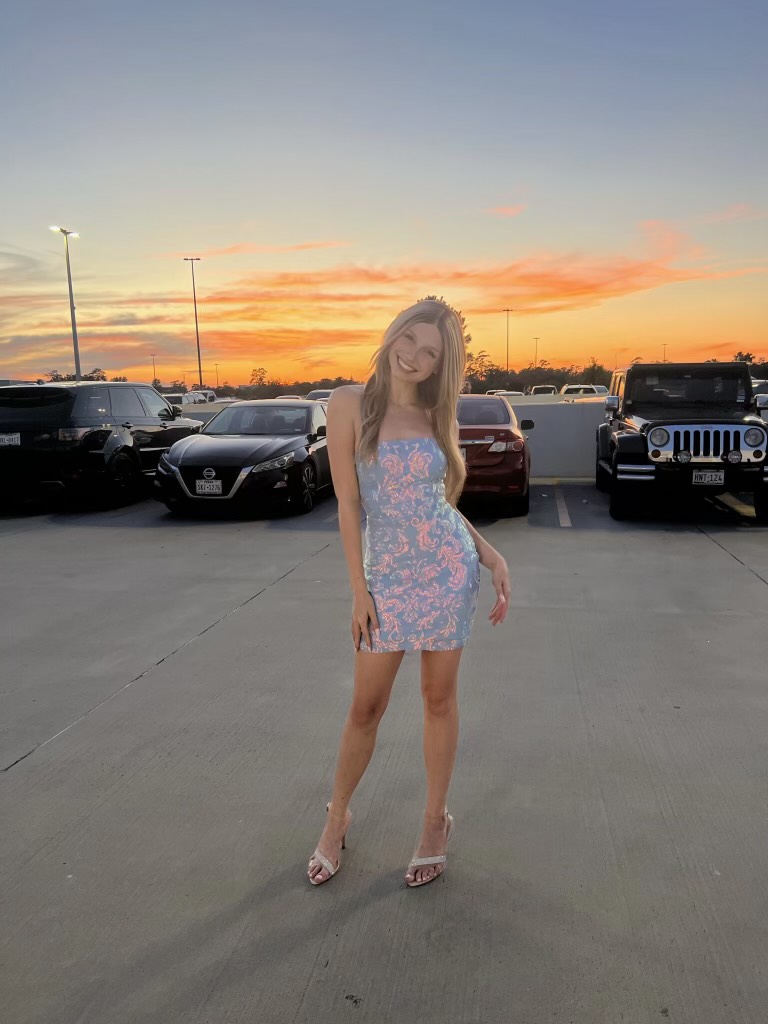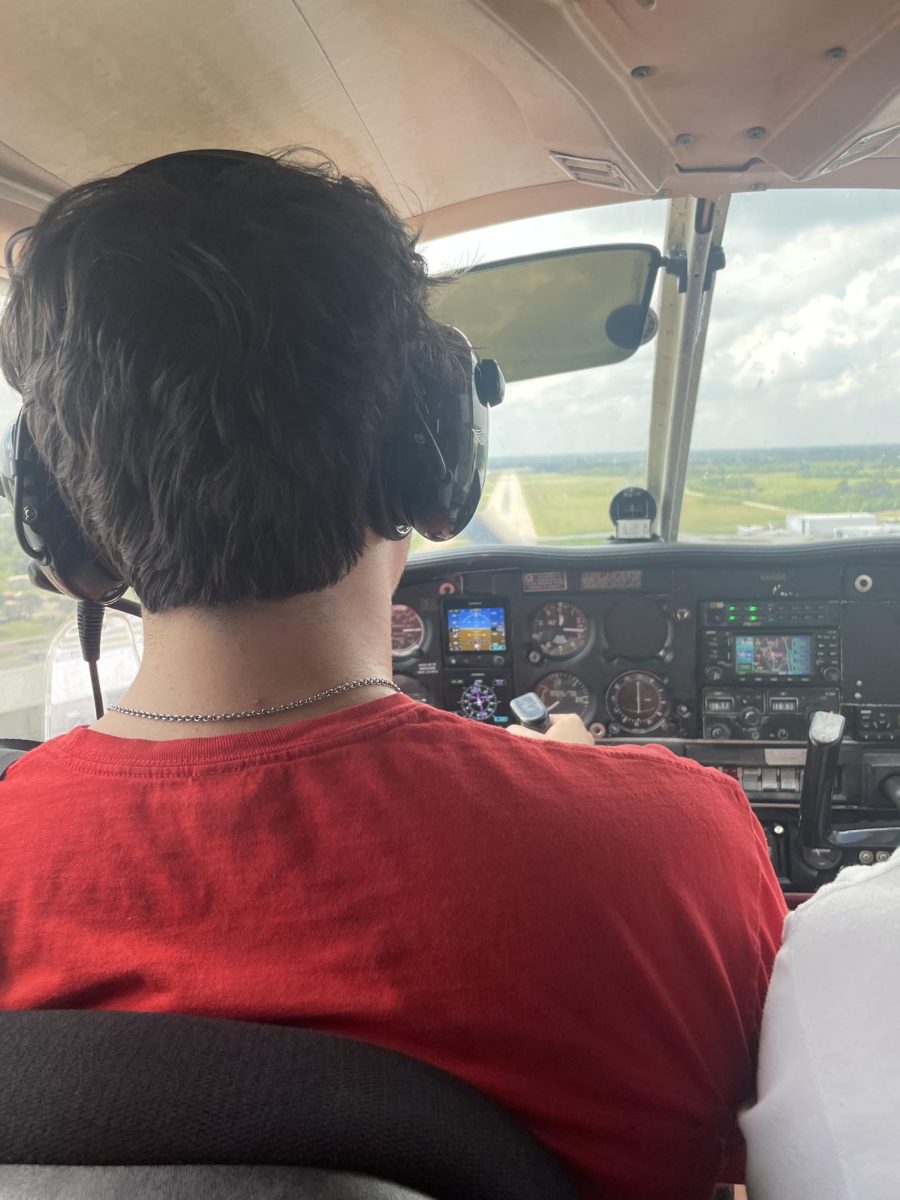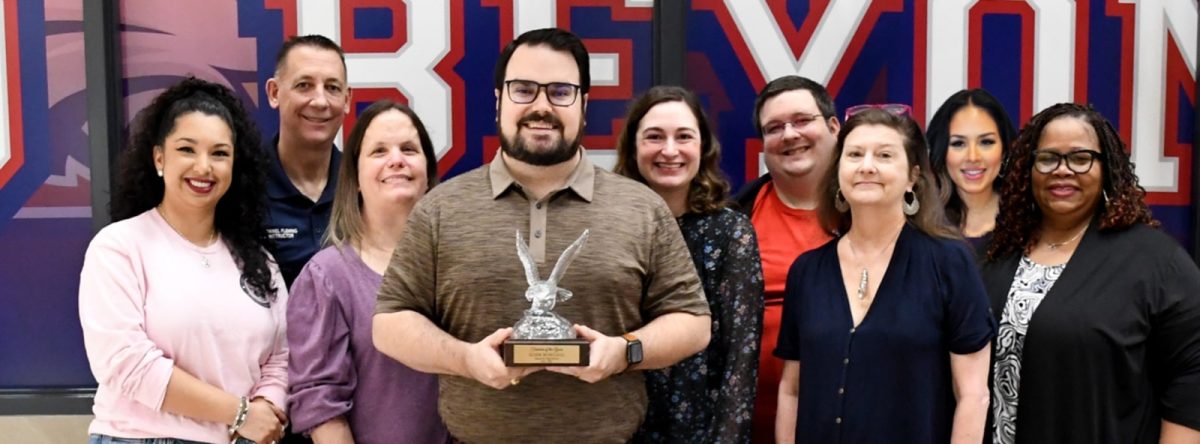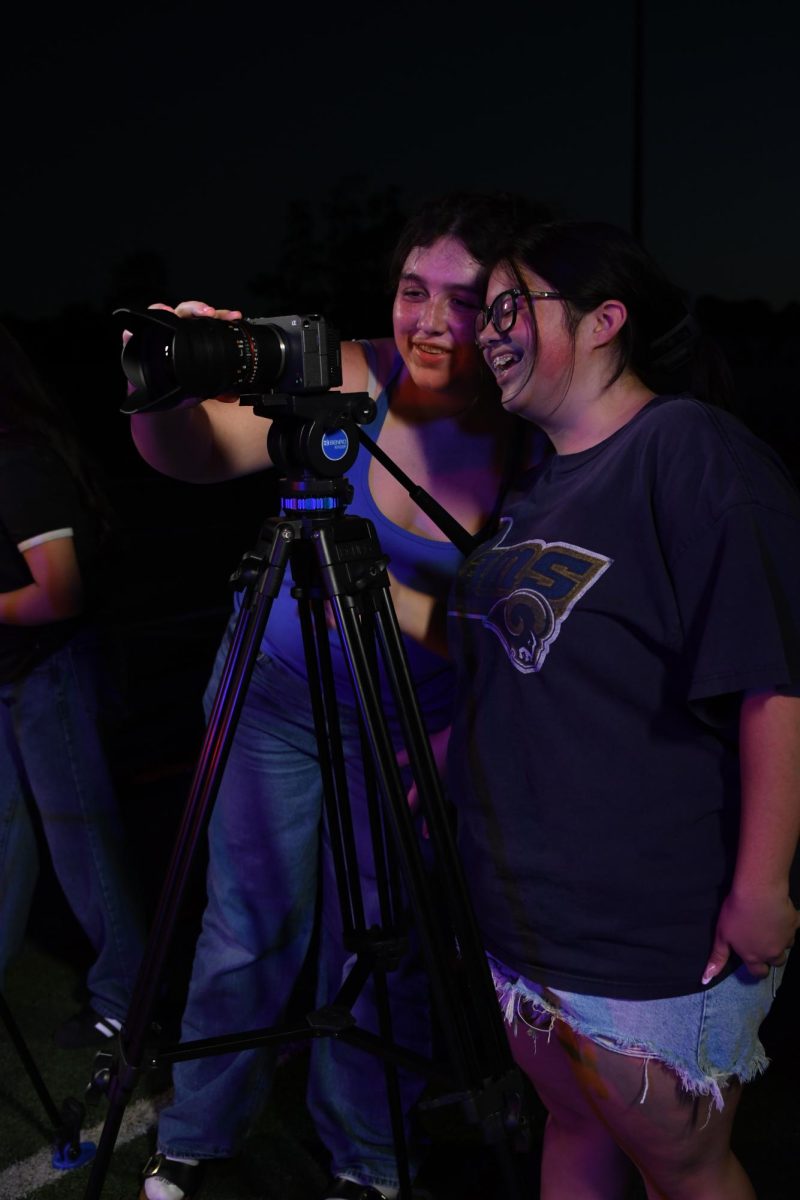Riley Buckalew has always loved to dance. She especially loved playing Just Dance. But one day when she was dancing, she noticed a strange noise every time she moved.
“It felt heavy and it sounded like sloshing,” Riley said. “Obviously now we know that was my tumor.”
Riley was first diagnosed with cancer after fifth grade. After noticing that she was feeling abnormally bloated for days at a time, she went to the doctor. It was then that the doctor felt her stomach and noticed it was rock hard, so she had x-rays and an ultrasound done.
“Later on in the day I walked into the house, and my dad just came up to me and hugged me without saying anything,” Riley said. “I was confused and asked what was wrong and he told me that they had found something and that we had to go to the emergency room.”
When they first did scans on her, they initially thought that she had ovarian cancer. However, they later found out that Riley had a very rare condition known as desmoplastic small round cell tumor cancer.
“My parents didn’t tell me this until years later, but during that time, the doctors told my parents that I was gonna die,” Riley said. “With my cancer most people die pretty immediately.”
Desmoplastic small round cell tumors grow around the abdomen and pelvic area. They are extremely rare and affect about 20 people annually in the United States.
“I know they have my cancer in a lab because it’s so rare,” Riley said. “They probably have it in a jar and poke at it on occasion.”
Although the doctors found Riley’s cancer relatively early, it managed to spread all over her abdomen and covered many of her organs.
“For the most part, I would do chemo on and off each week for a couple months until I had a 12 hour long surgery to remove the tumors,” Riley said. “They removed 1049 tumors and hit the remaining cancer with radiation. After radiation, they deemed that I was cancer free.”
This was a short-lived moment for Riley, as not much later, she was re-diagnosed when she was a freshman. This time around, the cancer was on her liver.
“My mom came up to me crying when we found out, but I honestly thought it was funny,” Riley said. “I laughed in her face.”
Riley was undaunted and mostly unbothered by the news of her cancer returning. Because she reacted well with the chemo before, she felt like there was no reason to be worried.
“I think I might have jinxed myself,” Riley said. “A lot went wrong after that second diagnosis.”
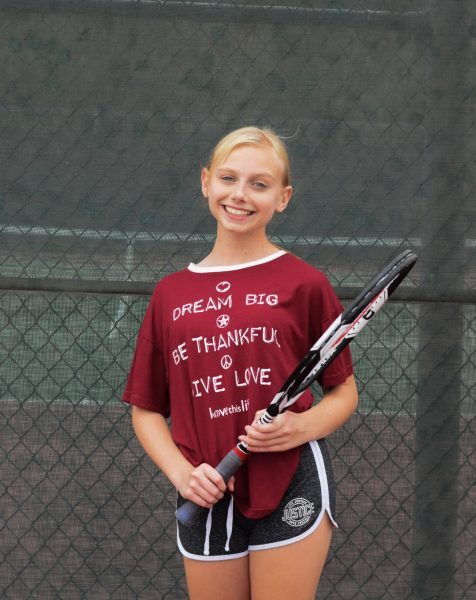
After her first round of chemo, Riley got abdominal cocoon syndrome, which forced her to go two months without eating. For those two months, she had fluids and lipids put into her through a port and later had a stomach tube put in. The doctors attempted to remove the blockage in her abdomen, but it didn’t work and caused her to have abdominal blocking. Now she has IBS problems and can’t eat most foods.
“I went from 90 to 60 pounds during that time,” Riley said. “Because I didn’t eat for two months, my body forgot how to digest food. I could only eat very little and it took me a whole year to be able to eat three full meals and gain my weight back.”
During those two months Riley had stopped her chemo to treat the abdominal pain. She later switched to a pill form of chemo, which her doctors believed would be more helpful. However, this caused her cancer to grow.
“For a while I was a little nervous because the cancer had not shrunk since I started chemo and now it was actually growing,” Riley said.
The chemo that Riley is doing now has been much more successful at shrinking her cancer and eventually her doctors want to do targeted radiation. However, Riley is against radiation.
“The place they did radiation last is exactly where my cancer ended up growing back,” Riley said. “They can’t remove my cancer either because it’s located on blood vessels and I would likely need a liver transplant if they messed it up. Chances are if I had another surgery, I would die.”
An interesting side effect of chemo is something known as chemo brain. Riley says that chemo can actually mess with your brain and senses and it has actually heightened her sense of hearing and sense of smell.
“I can smell my pills and know when they’re gonna taste bad,” Riley said.
The first time Riley had cancer she felt like she missed out on her childhood and much of her social life.
“A lot of people have their first little relationship in middle school and I never got that,” Riley said. “So when I came to high school, I didn’t know how to be around that kind of stuff.”
This time around with her cancer, Riley feels like she hasn’t lost anything.
“I’m honestly more stressed about AP Euro,” Riley said. “Chemo is like an afterthought to me. I’m just like ‘oh no I have to miss AP Euro to go do chemo.’ I have more freedom now because the first time around I was really sheltered.”
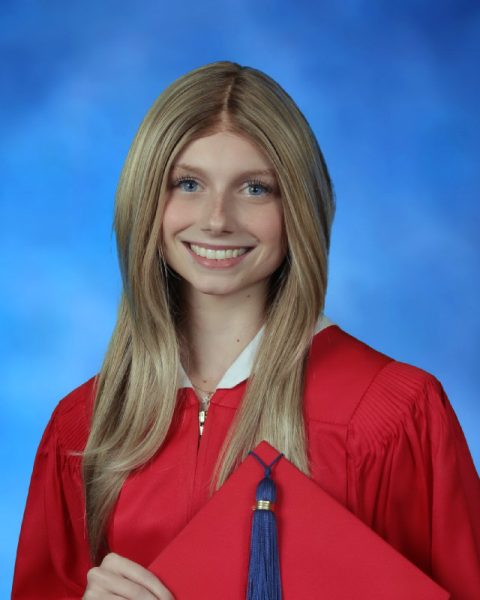
When Riley first came to high school, she didn’t “actively” look like she had cancer, but when she came back without hair, people changed their attitudes toward her. Last year when she ran for homecoming court, she was sent screenshots of people calling her ugly and telling her to harm herself.
“I have my banner hung up on the tennis courts, and I still hear people making fun of it sometimes,” Riley said. “People were really mean to me, and I’ve never been one to be insecure or care about what people think, but just having the knowledge that these people were judging me really bothered me.”
People with Riley’s type of cancer typically only have a 50% chance of living after five years. She was always told when she was younger that her cancer might never improve, so she never really thought about life after she turned 18 and as a result, never allowed herself to become passionate about anything.
“I haven’t focused on anything besides editing, so I’d want to go into entertainment because that is the only thing I’ve actually really liked,” Riley said. “I blew up on TikTok a while back after I posted this video of myself, but my problem is I don’t want to be known for having cancer.”
Riley has noticed that if she doesn’t post about her having cancer, then her videos don’t do well. She wants to find a middle ground in which she can talk about her cancer because it’s an important part of her, but she also wants to find a niche aside from it.
“I worry that once I don’t have cancer, people will fade away and I don’t want that,” Riley said.
Sometimes people are extra nice to Riley, which she doesn’t mind sometimes. But she doesn’t want people to treat her like she’s on her deathbed.
“I’m pretty sure a lot of people just thought I was gonna die, especially when I was out of school for a while,” Riley said. “People automatically correlate cancer with death because so many people die from cancer. But I’m not dying. Unless you see me on hospice rolling around, I’m fine.”


